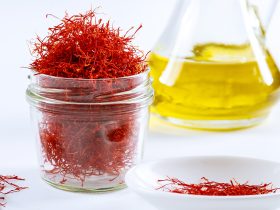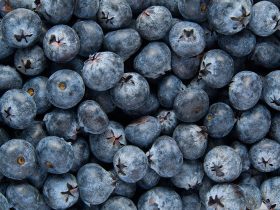We’re all familiar with the age-old saying, “an apple a day keeps the doctor away,” but let’s shift our focus to another nutritional powerhouse – the orange. Packed with antioxidants, micronutrients, and an array of health-boosting properties, oranges might just rival apples in their effectiveness at keeping you in the pink of health.
Let’s explore the multifaceted nutrition profile of oranges, brimming with essential fiber, vitamin C, folate, thiamine, and potassium – key components your body craves throughout the day.
Nutritional values of oranges
Deliciously tangy and refreshingly low in calories, oranges pack a nutritional punch that extends far beyond their vibrant taste. Their nutritional values makes them a common addition to many diets, including the portfolio diet.
Let’s delve into the details of an average raw navel orange (approximately 140 grams), unlocking the treasure trove of essential nutrients it offers:
- Calories: 73
- Protein: 1.3 g
- Total Carbohydrates: 16.5 g
- Sugar: 12 g
- Fiber: 2.8 g
- Total Fat: 0.2 g
- Cholesterol: 0 mg
- Vitamin B6: 0.111 mg (6% DV)
- Sodium: 12.6 mg (1% DV*)
- Thiamin: 0.095 mg (8% DV)
- Riboflavin: 0.971 mg (75% DV)
- Folate: 35 mcg (9% DV)
- Niacin: 0.595 mg (4% DV)
- Iron: 0.462 mg (3% DV)
- Pantothenic acid: 0.365 mg (7% DV)
- Calcium: 60.2 mg (5% DV)
- Phosphorus: 32.2 mg (2% DV)
- Magnesium: 15 mg (4% DV)
- Potassium: 232 mg (5% DV)
- Vitamin C: 82.7 mg (92% DV)
While relishing the nutritional benefits of raw oranges, it’s crucial to distinguish them from their juice counterpart.
Orange juice, though flavorful, tends to be higher in calories and sugar while lacking the fiber content present in raw oranges. Opting for the whole fruit ensures a more balanced and nutrient-dense choice.
In conclusion, the humble orange transcends its delightful taste, emerging as a nutritional powerhouse. Whether savored on its own or creatively incorporated into meals, the orange stands as a versatile and health-conscious choice, enriching your diet with a symphony of essential nutrients.
Types of oranges available
Let’s go on a journey through time and taste as we unravel the captivating history of oranges, celebrated for centuries for their delectable sweetness and robust nutrient profiles.
Believed to have originated in tropical Asian regions, orange trees traversed through India, Africa, and the Mediterranean, leaving a legacy of diverse and flavorful citrus fruits in their wake.
The 3 categories of oranges
- Mandarins
Closely related yet distinct, mandarins offer a sweeter and more easily peelable alternative to traditional sweet oranges.
The tangerine, a variety of mandarin, shares a similar nutritional profile, with subtle differences in micronutrient content. Their petite size and sweet flavor make them a convenient and delightful snack.
- Bitter Oranges
Bitter oranges find their niche in the realm of marmalades and orange-flavored liqueurs.
While less commonly eaten in their raw form, the distinct bitter flavor imparts a unique character to culinary creations. These oranges add depth and complexity to a range of dishes and beverages.
- Sweet Oranges
The quintessential choice for consumption and juice extraction, sweet oranges reign supreme in the citrus kingdom.
Varieties like the widely known navel orange, with its seedless nature, thick skin, and characteristic navel-like dimple, exemplify the sweet orange category. Their versatility makes them a culinary favorite, enjoyed in various forms.
Popular orange varieties
Clementines (Cuties)
Known for their petite size and effortless peeling, clementines, affectionately called “cuties,” have gained popularity as a convenient and sweet indulgence. These small wonders make for a perfect on-the-go snack, contributing to the diverse array of orange choices.
Blood Oranges
Standing out with their distinctive dark red flesh, blood oranges owe their unique color to the presence of anthocyanins, a type of antioxidant pigment. Beyond their visual appeal, these oranges bring a nuanced flavor profile to the table, adding depth to culinary creations.
Other Varieties
The world of oranges extends beyond the familiar, encompassing a spectrum of choices:
- Seville oranges
- Citrus bergamot oranges
- Valencia oranges
- Kishus
- Cara Cara oranges
- Satsumas
- Kumquats
Each variety introduces its own nuances in flavor, size, and texture, providing a delightful tapestry of options for culinary exploration.
Whether you crave the familiar sweetness of a navel orange or the exotic allure of a blood orange, the citrus world offers a myriad of choices to tantalize your taste buds.
Health benefits of adding oranges to your diet
Oranges, beyond their delightful flavor, emerge as a nutritional powerhouse, boasting a myriad of benefits that contribute to overall well-being.
Let’s delve into the compelling reasons to make oranges a staple in your diet:
- Help fight cancer cells
In the ongoing quest for optimal health, oranges emerge as formidable allies in the fight against cancer, adding another layer to their impressive roster of benefits.
The high antioxidant content in oranges positions them as key players in the battle against cancer. These antioxidants diligently combat free radicals, offering protection and potential prevention against the development of cancer. It’s no wonder that citrus fruits, including oranges, consistently earn their place among the top cancer-fighting foods.
Oranges boast a significant amount of vitamin B2 (riboflavin), with just one orange providing approximately 75 percent of the daily value.
Studies reveal an inverse association between vitamin B2 intake and prevalent cancer types, such as colon and breast cancer. Vitamin B2, functioning as an antioxidant, plays a pivotal role in regulating damaging free radicals and fortifying the immune system in the process.
A study conducted in Korea sheds light on the impact of citrus fruit intake on breast cancer risk. Those with a high consumption of citrus fruits experienced a notable 10 percent reduction in the risk of developing breast cancer, highlighting the potential protective effects of oranges.
Beyond breast cancer, research indicates inverse associations between citrus fruit intake and the risk of various other cancers. From esophageal and pancreatic to stomach and prostate cancer, the consumption of citrus fruits, including oranges, appears to correlate with a reduced risk, underlining their versatile cancer-fighting properties.
- Antioxidant Abundance
Oranges stand tall in the realm of antioxidant-rich foods. Bursting with health-promoting compounds, these citrus fruits play a pivotal role in combating free radicals, mitigating oxidative stress, and safeguarding against chronic diseases.
Notably, oranges are rich in bioflavonoids such as hesperidin and hesperetin, proven in test-tube studies to neutralize free radicals, curb inflammation, and minimize oxidative damage to cells.
- Help keep your skin healthy
Oranges, often embraced in the realm of skincare products, boast remarkable benefits for your skin. The antioxidant content in certain types of oranges plays a pivotal role in combating and even reversing the signs of skin aging.
In a test-tube study, the peels of tangerines demonstrated anti-aging and anti-wrinkle properties, highlighting the potential of oranges to promote skin vitality.
Research published in the Journal of Cosmetic Dermatology unveils the protective prowess of blood oranges against UV-induced skin damage.
Supplementation with an extract from blood oranges showcased a remarkable 20 percent decrease in age spot pigmentation, emphasizing the role of oranges in shielding your skin from the adverse effects of sun exposure.
- Immune Powerhouse
Oranges reign supreme as one of the finest sources of vitamin C, offering nearly 100 percent of the daily requirement in a single fruit. Beyond its antioxidant prowess, vitamin C emerges as a cornerstone in fortifying the immune system.
A review in the Annals of Nutrition & Metabolism underscores the significance of adequate vitamin C intake in reducing symptoms and duration of respiratory tract infections, including the common cold.
Moreover, it showcases potential benefits in mitigating conditions such as pneumonia, malaria, and diarrhea.
- Help with digestion
Oranges stand tall as an excellent source of dietary fiber, a crucial component for digestive health. When consumed, fiber gracefully maneuvers through the gastrointestinal tract, fostering satiety, adding bulk to stool, and promoting a healthy digestive rhythm.
This slow transit through the digestive system is particularly beneficial for those seeking relief from constipation.
A comprehensive analysis from China, combining findings from five studies, underscores the positive impact of fiber on stool frequency, especially in individuals dealing with constipation. The ability of fiber to regulate bowel movements adds another layer to the digestive benefits of incorporating oranges into your diet.
Fiber, acting as a prebiotic, becomes a vital fuel source for the beneficial bacteria residing in your gut. The health of your gut microbiome extends its influence to various aspects of overall health and is linked to the development of numerous diseases. By providing nourishment to these beneficial bacteria, oranges contribute to the delicate balance within your gut.
Fiber’s remarkable ability to stave off cravings and keep hunger at bay makes oranges one of the best fruits for weight loss. With only 87 calories in an orange, it is a filling and nutritious snack, offering a delightful alternative to curb hunger pangs while contributing to your weight management goals.
- They are good for heart health
Numerous studies highlight the pivotal role of citrus fruits, particularly oranges, in improving cholesterol levels and shielding against coronary heart disease.
In a groundbreaking study, individuals with high cholesterol received supplementation with citrus flavonoids for four to 12 weeks. The results were astounding, showcasing a significant reduction in total cholesterol (up to 30 percent), a remarkable drop in bad LDL cholesterol (by up to 27 percent), and a substantial cut in triglyceride levels (up to 34 percent).
Further reinforcing the heart-protective effects of citrus fruits, a study published in the Journal of Epidemiology underlines the link between frequent consumption of citrus fruits and a noteworthy reduction in the risk of heart disease and stroke.
This association sheds light on the potential of oranges to be more than just a flavorful addition to your diet but rather a proactive step in nurturing your cardiovascular health.
- Help protect cognitive function
Oranges, laden with flavonoids, unveil a promising connection to the preservation of cognitive function. These compounds, renowned for their antioxidant properties, hold the potential to safeguard against neurodegenerative disorders, including dementia and Alzheimer’s.
A study featured in the British Journal of Nutrition highlights the positive link between a higher intake of citrus fruits and improved cognitive function, particularly in older adults.
Recent research, as of 2017, delves into the neuroprotective effects of citrus fruits, pinpointing two crucial flavonoids – nobiletin and tangeretin.
While more research is essential, preliminary findings from animal studies suggest that these flavonoids could play a pivotal role in the treatment and prevention of dementia. The tantalizing prospect of oranges contributing to cognitive health underscores their multifaceted benefits.
How to get maximum benefits from oranges
Whether you opt for the familiar classics or venture into the realm of less common varieties, there’s a myriad of ways to savor the goodness of oranges:
- Simply peel and savor
The timeless method of peeling and enjoying oranges in their raw, unadulterated form remains a delightful choice. Whether as a quick snack or a refreshing addition to your meals, the natural sweetness and juiciness of fresh oranges are an instant mood lifter.
- Drink fresh orange juice
Pressing oranges into fresh juice is a classic way to enjoy their goodness. Whether enjoyed on its own, as a base for refreshing cocktails, or mixed into smoothies, fresh orange juice offers a versatile and invigorating beverage option.
- Try orange oil
Explore the beauty-enhancing potential of orange oil, extracted from the outer peel. Infuse it into your beauty products and cleaning supplies to harness its antibacterial properties and deliver a concentrated dose of antioxidants. Let the citrus-infused essence elevate your skincare routine and cleaning rituals.
- Add orange zest to your recipes
Take your culinary escapades up a notch by grating the outer peel and incorporating orange zest into your baked goods, pasta dishes, and sauces. The zest adds a burst of citrusy flavor, elevating the taste profile of your favorite recipes. Ensure a thorough wash of the orange before extracting the zest to savor its essence without any unwanted residue.
- Use them creatively in dishes and desserts
While savoring a fresh, peeled orange is a delight on its own, don’t hesitate to get creative in the kitchen. Experiment with orange segments in salads, use them as a topping for desserts or even incorporate them into savory dishes for a burst of citrusy freshness.
Orange consumption: risks and considerations
While whole oranges are rich in fiber, a crucial factor in slowing sugar absorption, the same cannot be said for orange juice. The concentration of sugar in orange juice, devoid of the beneficial fiber, poses potential drawbacks.
Commercial varieties, often laden with sugar and additives, may compromise the nutritional integrity of the juice, diminishing its health benefits.
For some individuals, moderation or even exclusion of oranges from the diet may be necessary. The reasons can vary, and it’s essential to be attuned to your body’s response to orange consumption. Any signs of discomfort or adverse effects should prompt a reassessment of your intake.
Though uncommon, some individuals may have allergies to citrus fruits like oranges. Allergic reactions can manifest as itching, swelling, and in severe cases, anaphylaxis, a life-threatening condition.
If you experience any adverse symptoms after consuming oranges, discontinue use immediately, and consult with your doctor.
Oranges, being highly acidic, can pose challenges for individuals prone to heartburn and acid reflux, especially those with gastroesophageal reflux disease (GERD).
If you notice symptoms like chest burning, nausea, or belching after consuming oranges, it may be prudent to moderate your intake to alleviate potential discomfort.
















Find Us on Socials